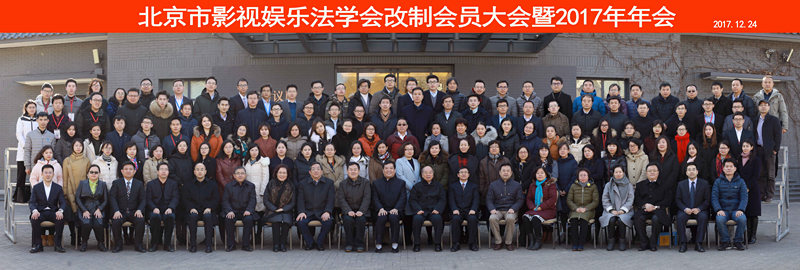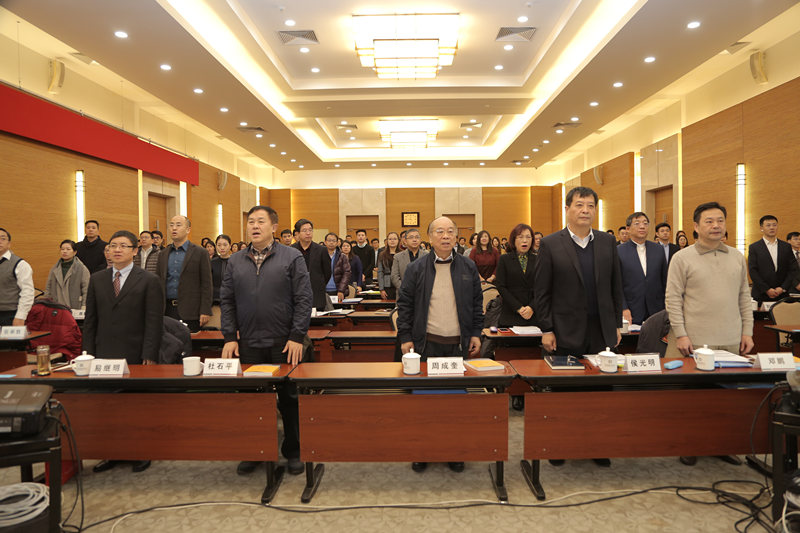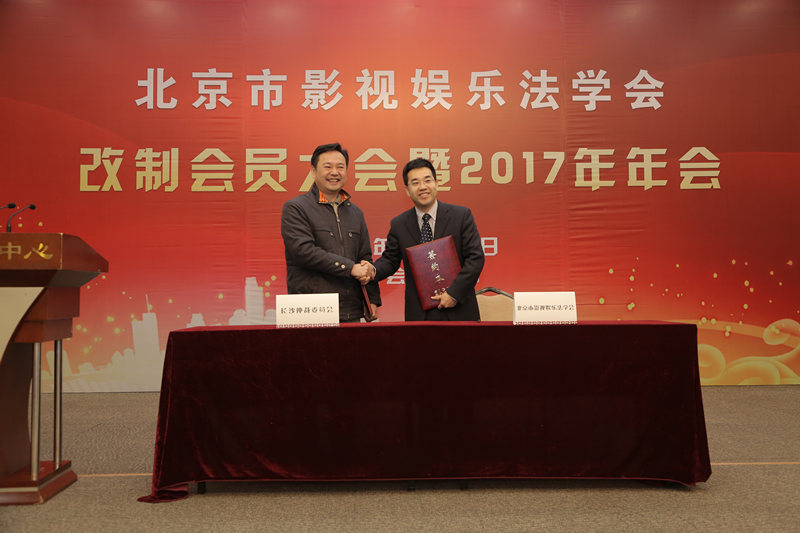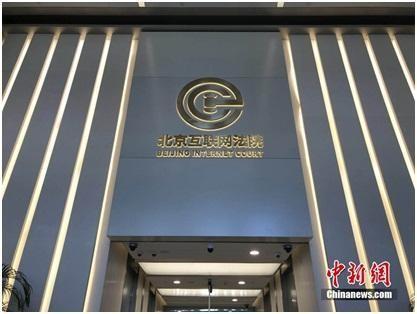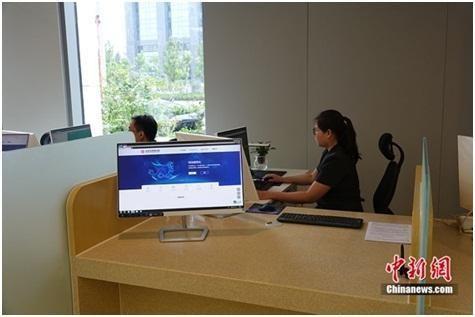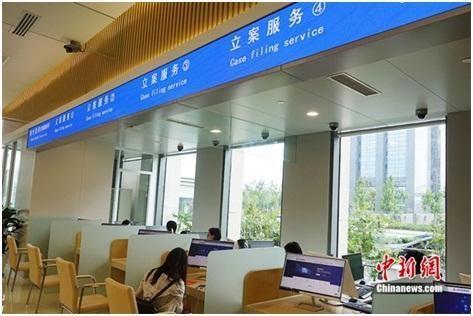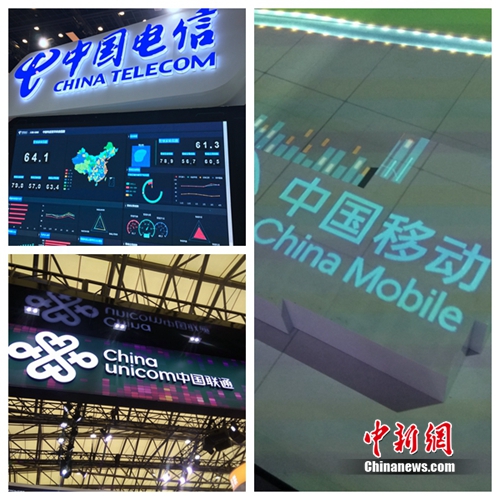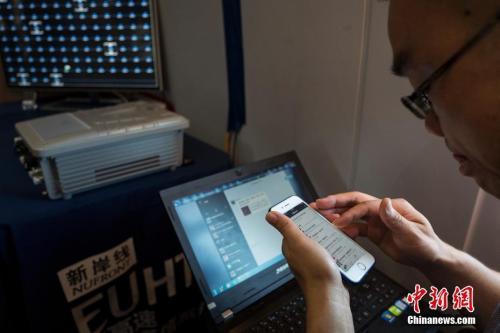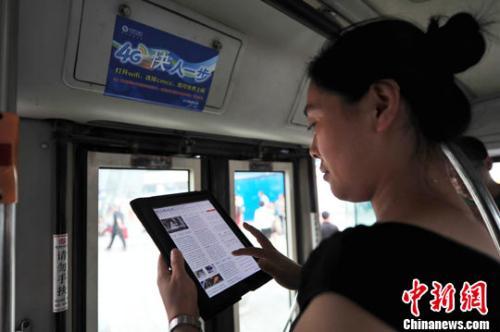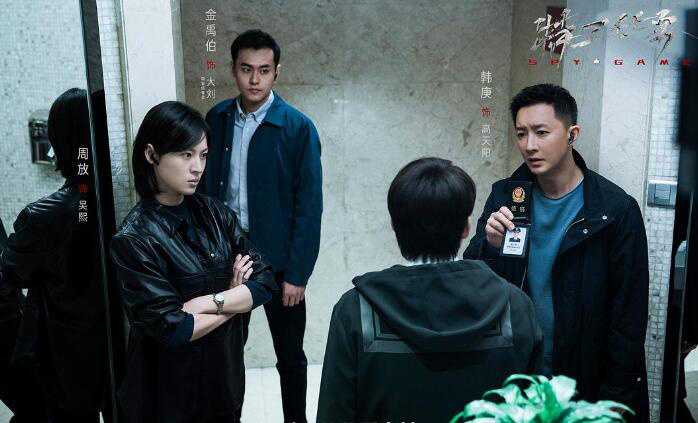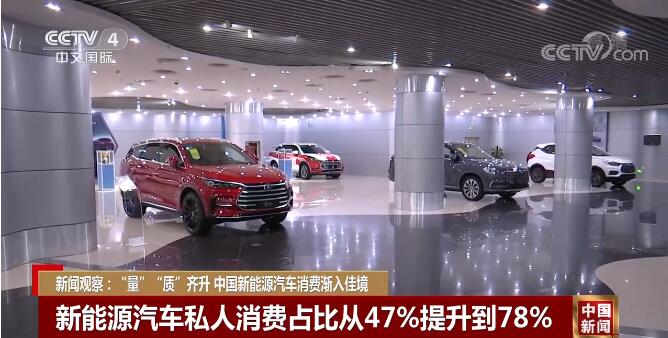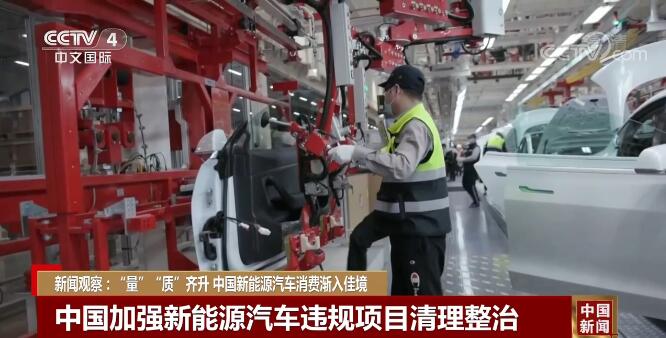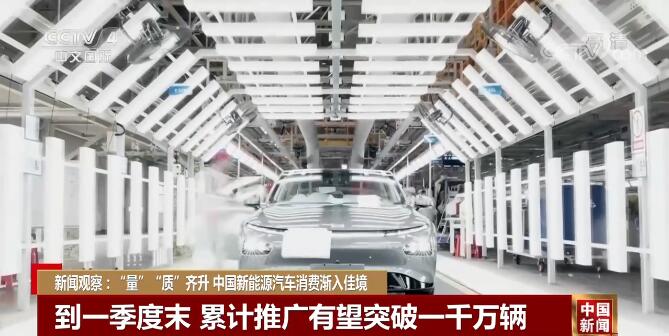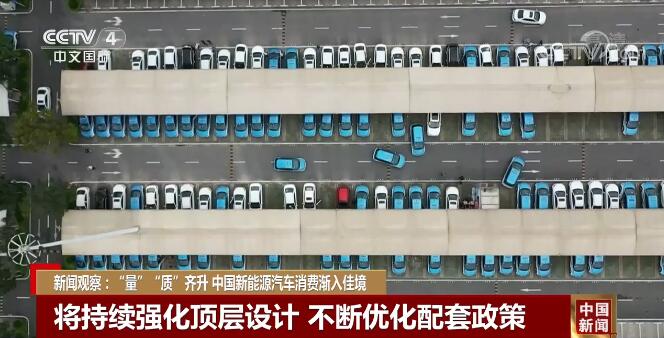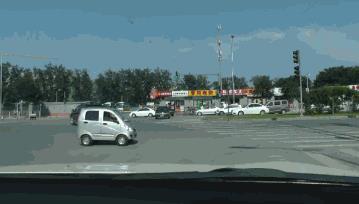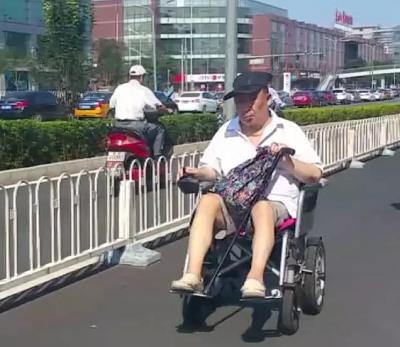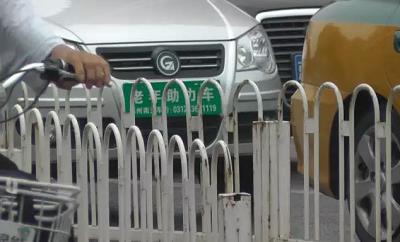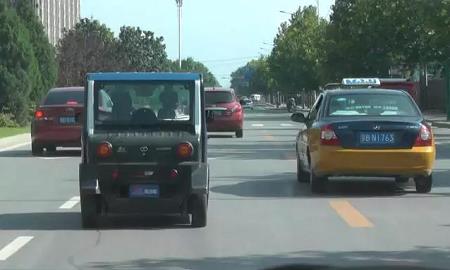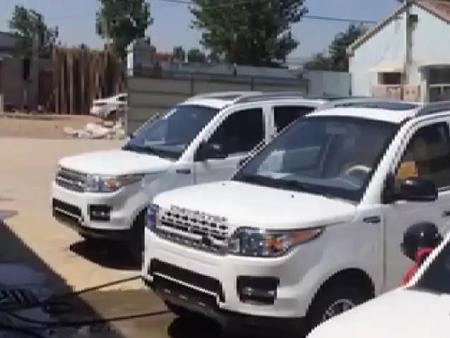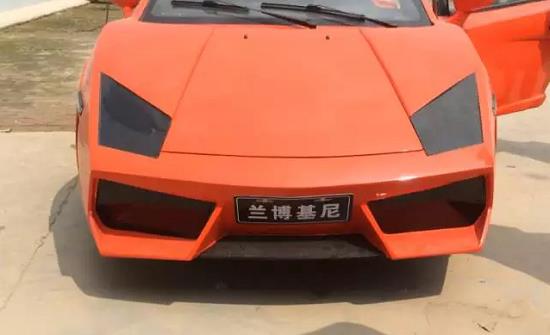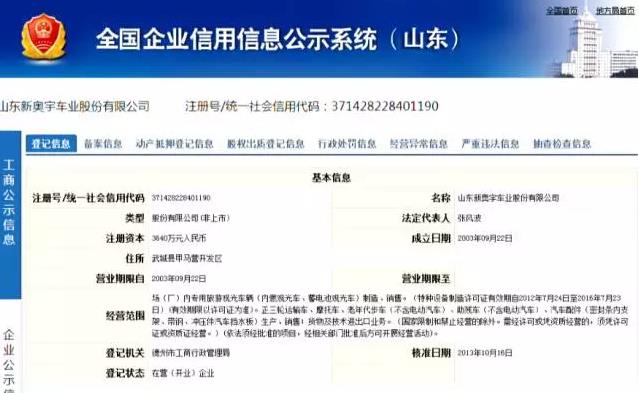Das Kapital, painted by a China man.
Time:14:00 on Friday, December 24th.
Location:Bilibili
Guest:Dai Dunbang (painter), Shen Jialu (writer) and Ma Shanglong (writer)
In addition to creating classic images such as A Dream of Red Mansions, Water Margin, Jin Ping Mei, Liaozhai, The Journey to the West and Tao Te Ching, Dai Dunbang also created Marx’s Das Kapital into a picture book, creating 60 masterpieces in 800 days, realizing the long-cherished wish of a China painter for half a century. He read Das Kapital many times and searched for information in many places, often getting up at 3: 30 in the morning to conceive and create. Why did a China painter paint Das Kapital, and how many hardships did ordinary people experience? At the lecture site, two writers in Dai Dunbang and Shanghai, Shen Jialu and Ma Shanglong, who are also "iron fans" of Mr. Dai, will tell you all about it.
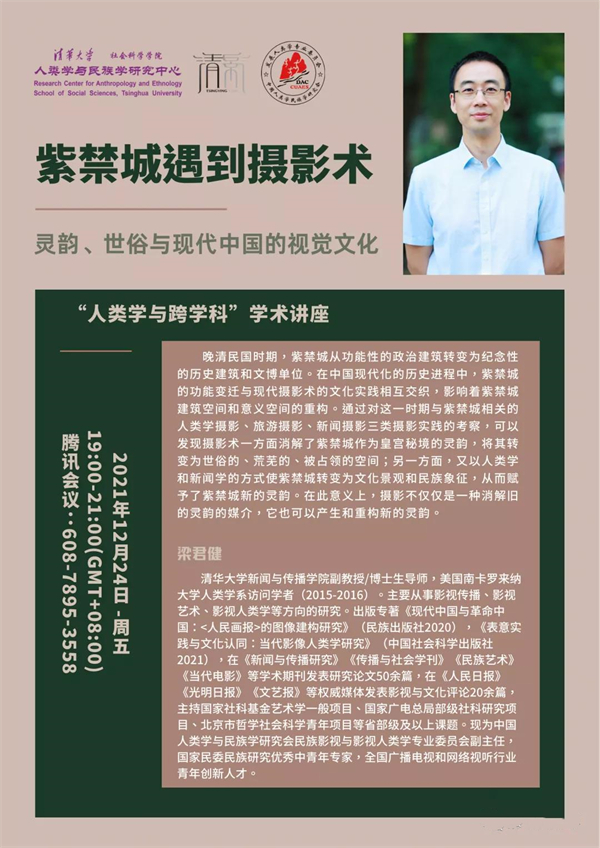
Photography in the Forbidden City: Charm, Secularity and Visual Culture in Modern China
Time:December 24th (Friday) 19:00-21:00.
Location:Tencent conference (ID: 60878953558)
Speaker:Jun-jian Liang (Associate Professor, School of Journalism and Communication, Tsinghua University)
During the late Qing Dynasty and the Republic of China, the Forbidden City changed from a functional political building to a memorial historical building and cultural and cultural unit. In the historical process of China’s modernization, the functional changes of the Forbidden City are intertwined with the cultural practice of modern photography, which affects the reconstruction of the architectural space and meaning space of the Forbidden City. Through the investigation of anthropological photography, tourism photography and news photography related to the Forbidden City in this period, we can find that photography dispelled the charm of the Forbidden City as a secret palace and turned it into a secular, barren and occupied space. On the other hand, anthropology and journalism have transformed the Forbidden City into a cultural landscape and a national symbol, thus giving the Forbidden City a new charm. In this sense, photography is not only a medium to dispel the old charm, but also can produce and reconstruct new charm.
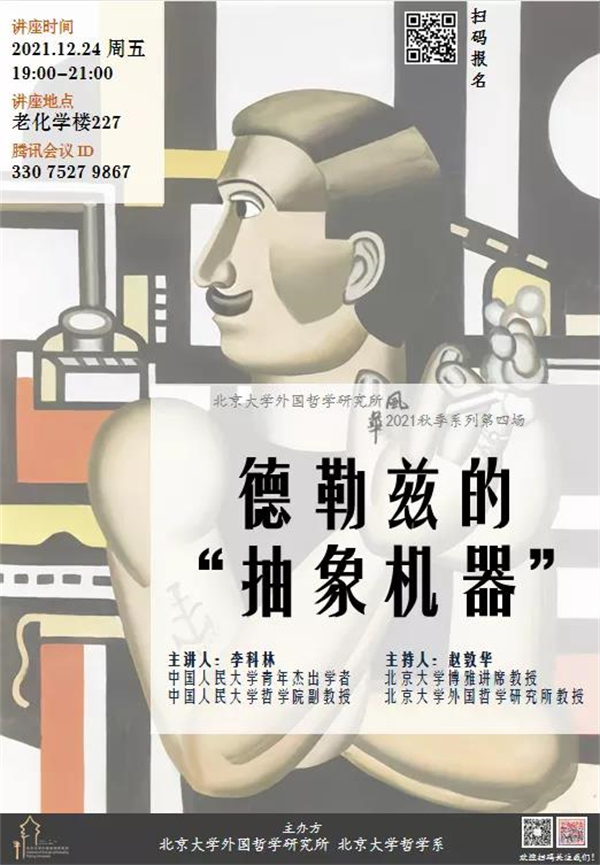
Deleuze’s "Abstract Machine"
Time:December 24th (Friday) 19:00-21:00.
Location:Tencent conference (ID: 33075279867)
Speaker:Li Kelin (Associate Professor and Doctoral Supervisor, School of Philosophy, China Renmin University)
Abstract machine is an important concept in Deleuze’s later theory. In Thousand Plateau, he replaced the desire machine in Anti-Oedipus with abstract machine, trying to separate the active escape line from the passive generation of human beings. In Anti-Oedipus, Deleuze compares the automaticity of production with machines, fills the internal power of production with desire, and combines the two to illustrate the existence of individuals in society with "desire machine". Correspondingly, the "abstract machine" points out the absolute surplus phenomenon of the desire machine in social production, while the "abstract" shows the pure material out of form, while the "machine" turns to the birth of a new form. From the perspective of ontology, "abstract machine" resists the solidification of existence with eternal rheology. From the perspective of vitality theory, "abstract machine" opposes the transcendence of ideas with the immanence of experience. Deleuze explored the possibility of resolving the confrontation between life and machine through this concept, and also intended to respond to the question that always lingered above the limit of "solution domain". The discussion of life initiative through "abstract machine" is not only the theme of Deleuze’s later philosophy, but also constitutes an important trend in the development of contemporary French philosophy.
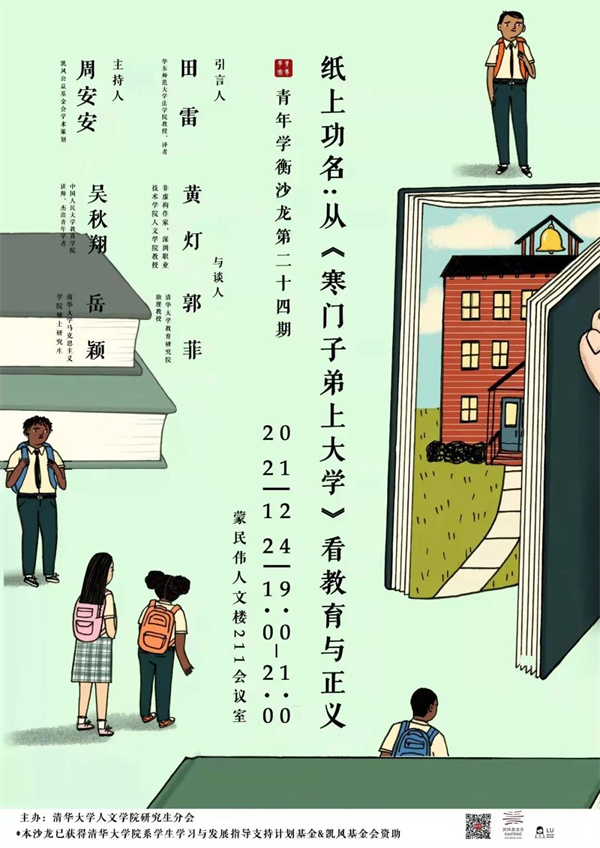
Fame on Paper: On Education and Justice from Children of Poor Families Going to College
Time:December 24th (Friday) 19:00-21:00.
Location:Tencent conference (ID: 931714617)
Guest:Tian Lei (Professor, School of Law, East China Normal University), Huang Deng (Scholar, Non-fiction Writer), Guo Fei (Assistant Professor, Tsinghua University Institute of Education), Wu Qiuxiang (Lecturer, School of Education, China Renmin University), Yue Ying (Master, Tsinghua University Institute of Marxism).
"Admission is not equal to integration." This sentence was published in "Poor Children Go to College: Why American Elite Universities Turn Their Back on Poor Students". The book is frequently mentioned. When poor students break through the thorns and knock on the university gate, it does not mean that the standard plot of "counterattack" in life will be started from now on. A more realistic scenario is that when you open this door, there is still a road full of unknowns in front of you. Some people will rise from there, while others will gradually give up on themselves in the constant fall. What caused this difference? This salon will invite a number of guests from different disciplines, starting with the book "Children from Poor Families Go to College", to discuss the issues of education and justice, and to compare and think about them in a broader social and historical perspective.
Image Centennial Shanghai Design: Looking back on the course of Shanghai design in the past century
Time:14:00 on December 25th (Saturday)
Location:Bilibili
Guest:Lei Zhao (Deputy Director of the Department of Design, Shanghai Academy of Fine Arts, Shanghai University), Jiang Qinggong (Graphic Designer) and Tang Weijie (Associate Professor, School of Humanities, Tongji University)
Image Centennial Shanghai Design includes the exhibition of "Centennial Shanghai Design" held by Liu Haisu Art Museum in the autumn of 2020. It looks back at the beginning, development and change of "Shanghai Design" from the end of 19th century to the beginning of 21st century with rich levels and angles, and completely displays 20 main stories and 50 entries of "Shanghai Design". This sharing meeting, together with the publishing of new books, is intended to let readers know the basic historical track of the development of "Shanghai Design".
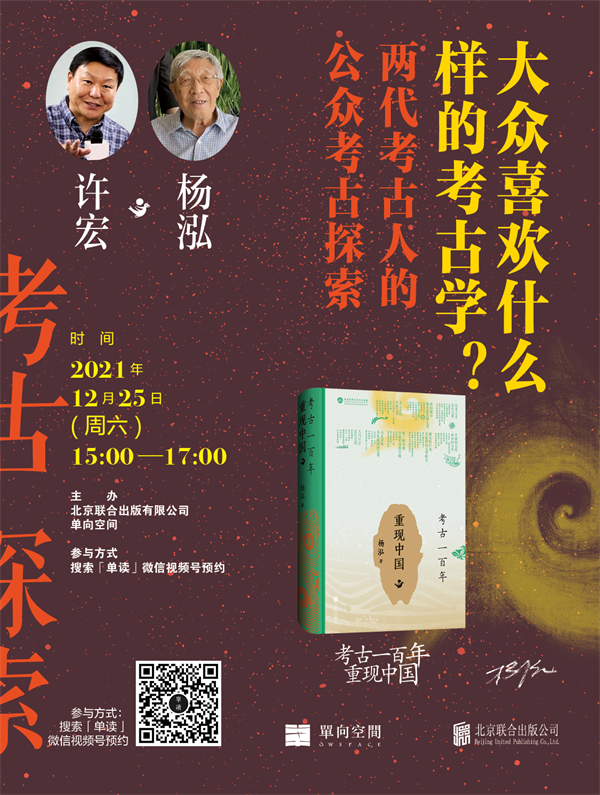
What kind of archaeology do people like? -public archaeological exploration by two generations of archaeologists
Time:December 25th (Saturday) 15:00-17:00
Location:"single read" wechat video number
Guest:Yang Hong (Senior Researcher, Institute of Archaeology, Chinese Academy of Social Sciences) and Xu Hong (Researcher, Institute of Archaeology, Chinese Academy of Social Sciences)
In 1921, the excavation of Yangshao site by An Tesheng and others opened the prelude of modern archaeology in China. This year happens to be the 100th year of China archaeology. During this hundred years, due to the progress of science, field archaeology has sprung up suddenly, and the field archaeological excavation in China has achieved unprecedented and fruitful results. Yang Hong’s "One Hundred Years of Archaeology-Reproduction of China" includes the important archaeological discoveries in the past 100 years, from prehistoric civilization to Song civilization, from city sites, temple towers and tombs to bronze mirrors and jade articles. And what kind of stories are behind these relics or cultural relics, and what kind of thinking has caused archaeologists? On December 25th, welcome to the "Single Reading" video number to watch the live broadcast, and listen to Mr. Yang Hong and Mr. Xu Hong talking about those stories about archaeology …
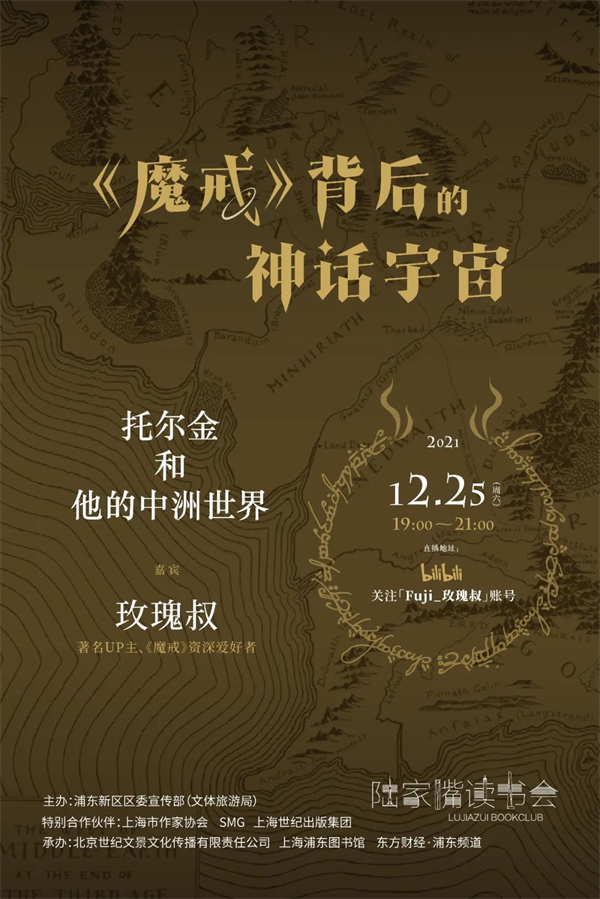
The Mythical Universe Behind The Lord of the Rings —— Tolkien and His Mid-continent World
Time:December 25th (Saturday) 19:00-21:00
Location:Bilibili
Speaker:Uncle Rose (Lord UP, Lord of the Rings fan)
How on earth should we enter the Zhongzhou universe created by Tolkien? How to clarify Tolkien’s long history? On Saturday night (December 25th is the day when the Lord of the Rings expedition set out from the valley), we invited Uncle Rose, a famous UP master and a veteran fan of The Lord of the Rings, to take all the members of the Lord of the Rings into the mythical universe behind The Lord of the Rings.
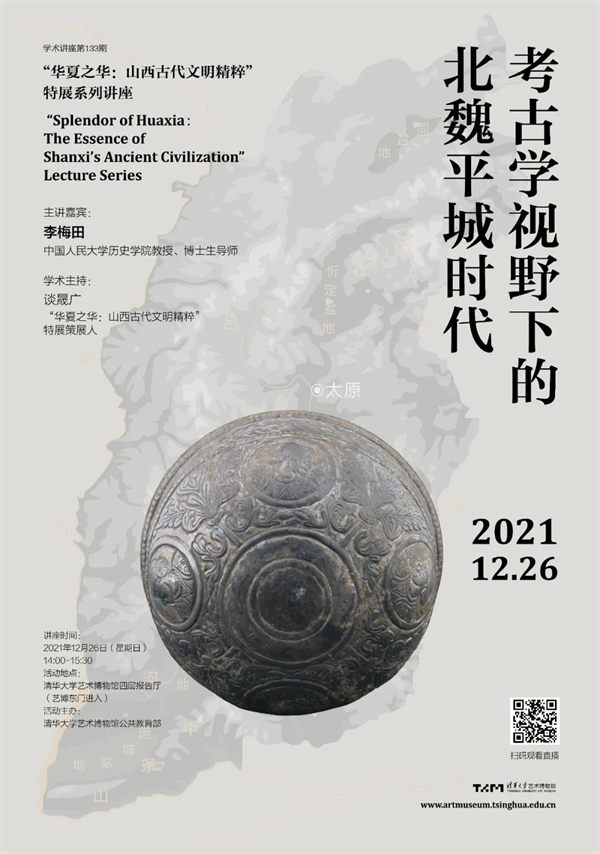
The Pingcheng Period in the Northern Wei Dynasty from the Perspective of Archaeology
Time:December 26th (Sunday) 14:00-15:30.
Location:Tsinghua Yibo official Weibo, Live Art, Live Art, Calligraphy and Art Commune.
Speaker:Li Meitian (Professor and Doctoral Supervisor, School of History, Renmin University of China)
The fifth century, with Pingcheng (now Datong) as its capital in the Northern Wei Dynasty, was a period of political, social and cultural transformation of Tuoba Xianbei, which was an important link in the process of pluralistic integration of Chinese civilization. The lecture will interpret the characteristics and evolution of civilization in this transitional period from three aspects: urban form, funeral culture and tomb art.
Hangzhou: Historical Narration and Literary Writing
Time:December 26th (Sunday) 15:00-17:30.
Location:Tencent conference (ID: 160939440)
Guest:Liu Zhengping (researcher of Chinese Department of Hangzhou Normal University), Lv Yanlin (lecturer of Chinese Department of Hangzhou Normal University) and Hu Yuehan (associate professor of history department of Hangzhou Normal University)
The ancient city of Liangzhu 5,000 years ago, the "Southeast Famous County" from Qin and Han Dynasties, and the "Heavenly Palace" in the 10th century A.D., the historical figure of Hangzhou City is constantly changing. The same scenery, different people may have different complex; The same city, different historical backgrounds may show different charm. A little bit of text marks, patterns and historical meanings. On December 26th, Meiyuan Classic Reading Group will hold the 42nd Salon to exchange the image and humanistic feelings of Hangzhou in literature and history through online reading at Tencent Conference.
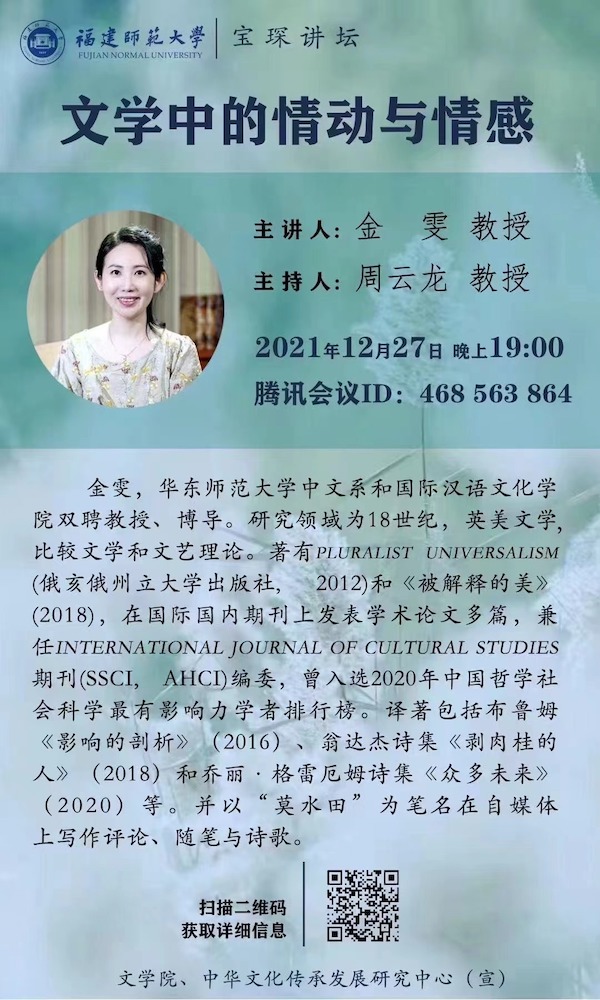
Emotion and emotion in literature
Time:19:00 on Monday, December 27th.
Location:Tencent conference (ID: 468563864)
Speaker:Wei Jin (Professor, Chinese Department, East China Normal University)
Teacher Wei Jin mainly studied British and American literature, comparative literature and literary theory in the 18th century, and published comments, essays and poems in the media under the pseudonym of Mo Shuitian. On December 27th, we invited her to give an online lecture on emotion and emotion in literature.

Compilation and construction of preface and postscript collection, chronological examination and database of Chinese-translated literature
Time:December 30th (Thursday) 15:00-17:00
Location:Tencent conference (ID: 931633106)
Speaker:Li Jin (Professor, School of Literature, China Renmin University)
The academic circles call the great changes in the concept, connotation, presentation, storage, retrieval and acquisition of historical materials caused by the new historical view, especially the computer and digital technology, the "historical materials revolution". The compilation, annotation and writing of 18 volumes of Preface and Postscript Collection of Chinese Translation Literature (1894-1949) and 10 volumes of Textual Annals of Chinese Translation Literature (periodical articles) (1896-1949) and their database construction are in the process of this historical revolution. The lecture summarizes the new insights and discoveries brought by the cultural turn theory of translation studies to the collation and research of Chinese-translated literary historical materials, as well as the problems and opportunities encountered in the digital humanities era, and shares the experience of the mutual blending and creative transformation of traditional research methods and digital technology; Then it expounds the name, reality and approach of Chinese-translated literature research. In the late Qing Dynasty and the Republic of China, Chinese-translated literature occupied an important position in China’s thought and speech, and it was an anatomical prototype to explore how China culture "transformed" western learning; Finally, the lecture will also look forward to the completion of these two large-scale historical materials projects, which may play a positive role in constructing the overall evolution of literary history, grasping the ideological atmosphere and historical context of an era, revealing the complexity of the modern transformation of China literature, rewriting the history of Chinese literature, and even the history of modern literature in China.
Attachment: Preview of offline activities
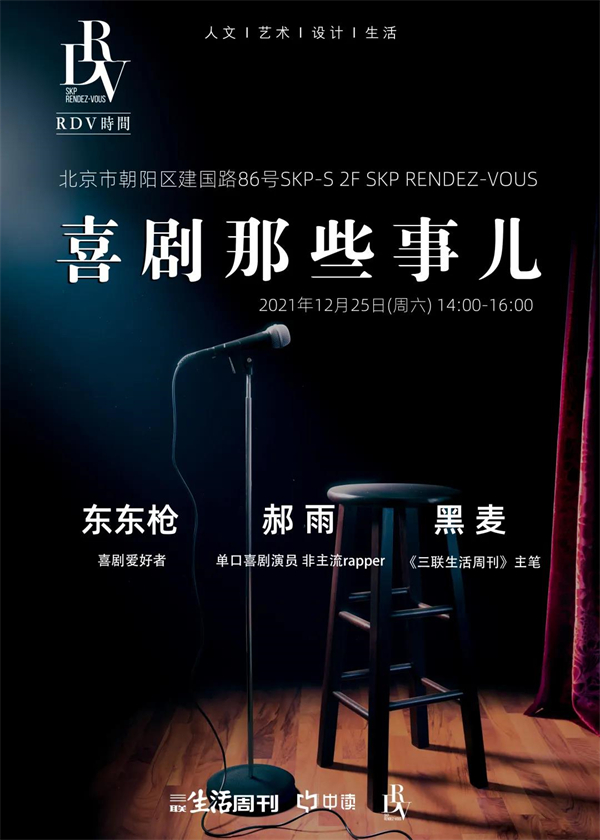
Beijing | those comedy things
Time:December 25th (Saturday) 14:00-16:00
Location:SKP RENDEZ-VOUS, Floor 2, SKP-S Shopping Center, No.86 Jianguo Road, Chaoyang District
Guest:Dongdong Gun (comedy lover), Hao Yu (stand-up comedian)
Maybe you want to know more about talk shows and new comedies. On December 25th, we jointly held a theme salon with Sanlian Life Weekly called "Comedy Things". Hao Yu, a comedian and stand-up comedian, was invited to visit SKP RENDEZ-VOUS, and rye, the main writer of Sanlian Life Weekly, was the host to talk about what we are laughing at now.
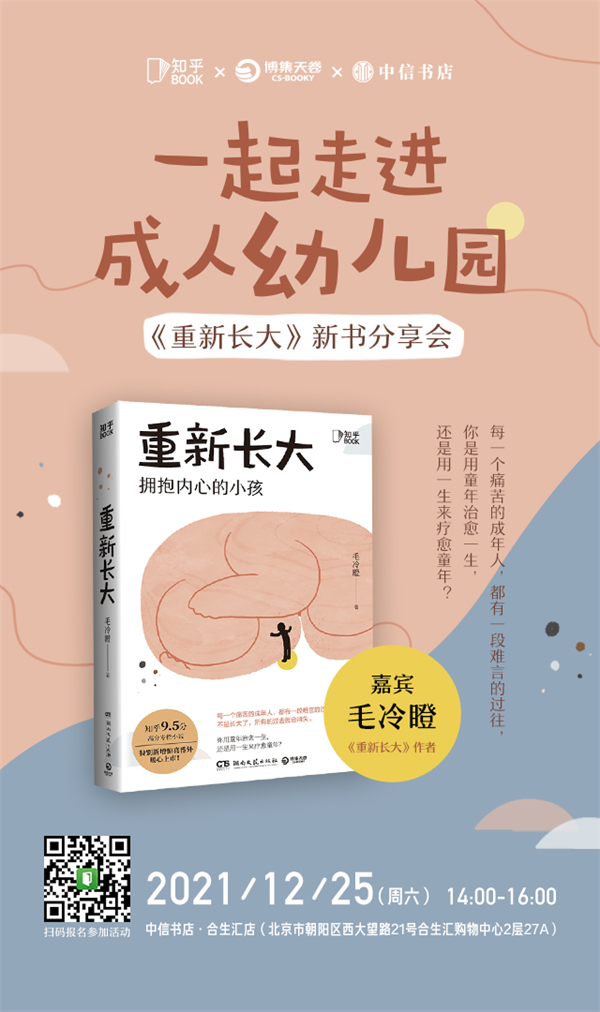
Beijing | Walking into Adult Kindergarten Together —— Sharing Meeting of the New Book Growing Up Again
Time:December 25th (Saturday) 14:00-16:00
Location:CITIC Bookstore, Floor 2, Heshenghui Shopping Center, No.21 Xidawang Road, Chaoyang District
Speaker:Mao Lengleng (writer)
Growing Up Again is a collection of novels written by Mao Lengdeng, a high-quality creator in Zhihu. The book fictionalizes an "adult kindergarten" which is specially open to adults and takes in "children" who are covered with scars and don’t grow up. With the gentle tone of storytelling and professional psychological knowledge, the author expresses the obscure theory in a perceptual and easy-to-understand way, which is very inclusive. On December 25th, we will hold a new book sharing meeting with Mao Lengdeng in CITIC Bookstore (Heshenghui Store). At Christmas, embrace your inner child and grow up again.
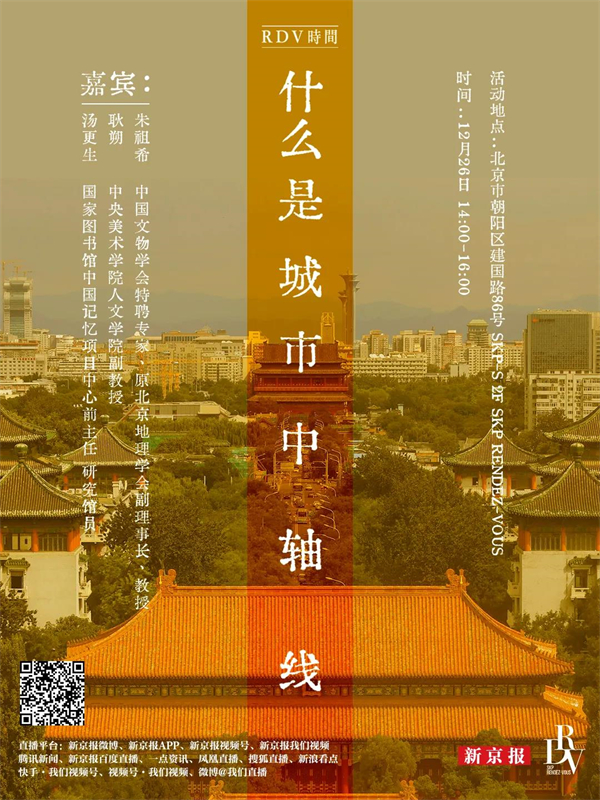
Beijing | What is the central axis of the city?
Time:December 26th (Sunday) 14:00-16:00
Location:SKP RENDEZ-VOUS, Floor 2, SKP-S Shopping Center, No.86 Jianguo Road, Chaoyang District
Guest:Zhu Zuxi (special expert of China Cultural Relics Society), Geng Shuo (associate professor of School of Humanities, Central Academy of Fine Arts) and Tang Gengsheng (former director and research librarian of China Memory Project Center of National Library).
Axis is like the "aorta" of a city. Every great city has its unique axis, which represents the development and planning of cities in past dynasties and the highest level of architects. The central axis of Beijing is an extremely rare axis of architectural art in the history of world cities. On December 26th, we invited Zhu Zuxi, a distinguished expert of China Cultural Relics Society, Geng Shuo, an associate professor of the School of Humanities of the Central Academy of Fine Arts, and Tang Gengsheng, former director of the China Memory Project Center of the National Library, to visit SKP RENDEZ-VOUS to talk about the pattern evolution and context inheritance on the central axis.
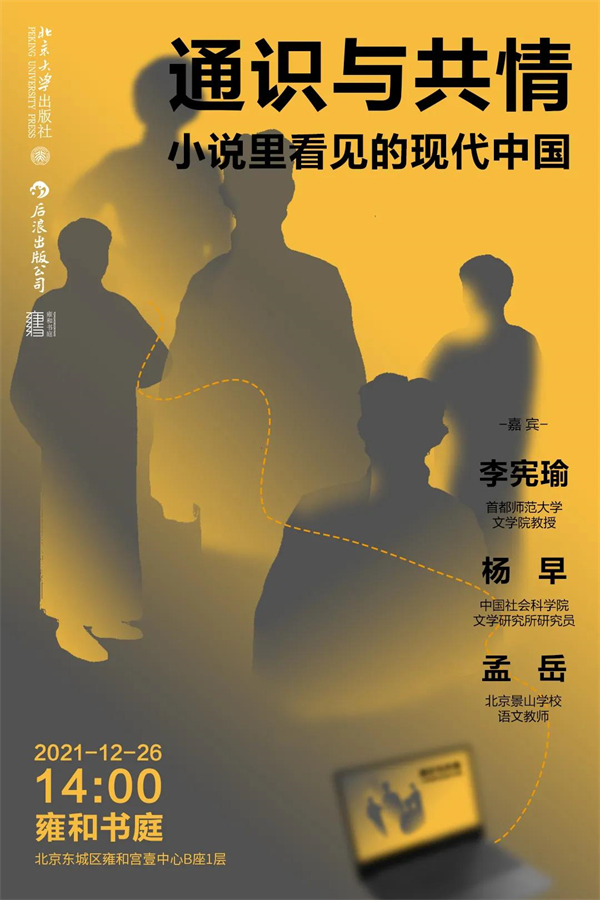
Beijing | General Knowledge and Empathy: Modern China Seen in Novels
Time:14:00 on Sunday, December 26th.
Location:Yonghe Bookstore, Floor 1, Block B, Yonghe Palace One Center, No.51 Hepingli West Street, Dongcheng District
Guest:Li Xianyu (Associate Professor, School of Literature, Capital Normal University), Yang Zao (Researcher, Institute of Literature, China Academy of Social Sciences) and Meng Yue (Chinese teacher).
Fiction is a footnote to history, and its content is fictional, but it often reflects the mood of the times more truly and moving than newspaper files. The Novel Modern China selected 40 classic novels from 1919 to 1948, which cleared the fog of words and searched for clues in the novels, presented readers with various social conditions in modern China, and opened the "hidden corner" hidden in these novels that we had previously ignored. On the afternoon of December 26th, in Yonghe Bookstore, Li Xianyu, a professor at the School of Literature of Capital Normal University, Yang Zao, a research institute of Literature of China Academy of Social Sciences, and Meng Yue, a Chinese teacher at Beijing Jingshan School, will take you through the 30 years of the Republic of China and read China in novels.
Beijing | 2021 Year-end Reading Sharing Meeting
Time:December 26th (Sunday) 14:00-17:00
Location:Naimu Bookstore, 4th Floor, Yansha Friendship Shopping Mall, No.52 Liangmaqiao Road, Chaoyang District
It’s the 10th year from the first year-end conference at the end of 2012 to this year. Every year, the year-end conference is the most important activity in the library. Book lovers will share their reading experience for one year, recommend their annual TOP10 list and reading plan for the coming year. At the annual year-end conference, you can find the readers around you as your reading role models. If you are still looking for good books worth reading, if you are still regretting that you have a mountain of books and read very little, if you have read interesting books and want to find a bosom friend to share. Then you must attend the year-end meeting of the library pavilion!
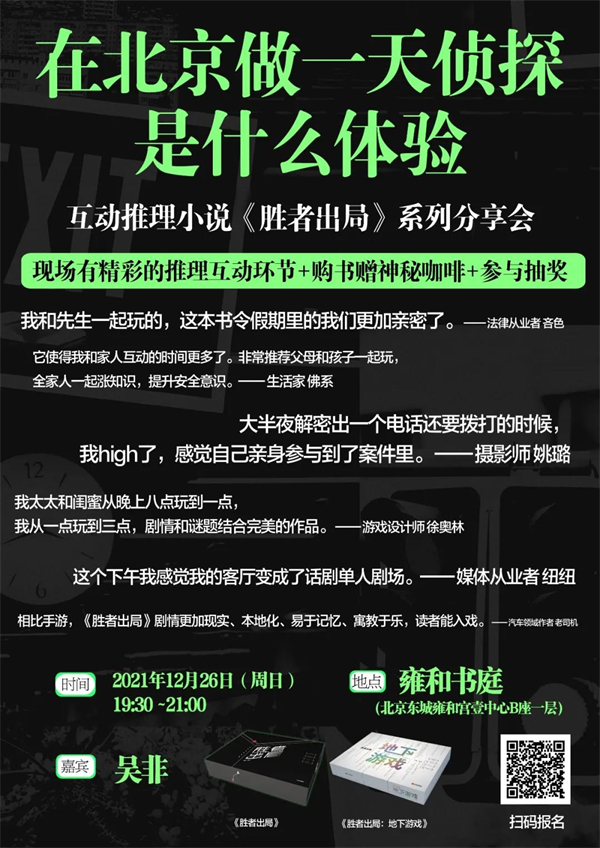
Beijing | What’s the experience of being a detective in Beijing for a day: a sharing session of the interactive mystery novel Winner Out.
Time:December 26th (Sunday) 19:30-21:00.
Location:Yonghe Bookstore, Floor 1, Block B, Yonghe Palace One Center, No.51 Hepingli West Street, Dongcheng District
Speaker:Wu Fei (mystery novelist)
A set of three-dimensional interactive reasoning novels, a set of three-dimensional interactive reasoning game books, and a series of brain-burning pursuit games. Through the maze of exquisite entities and online props, step by step approach the core of the case. This will be an adventure that can’t guess the ending. Until it’s over, you will find it hard to detect the incredible truth.
Shanghai | Telescope and Starry Sky
Time:December 25th (Saturday) 13:30-15:00
Location:Atrium of Building A, Lianyang Plaza, No.300 Fangdian Road, Pudong New Area
Speaker:Wu Jingping (popular science writer)
Just last month, Academician Wu Xiangping announced that China would build five more sky-eye-level radio telescopes to form the most powerful radio telescope array in the world, which can ensure that China is ahead of the world in the hardware capability of radio telescopes for 50 years. Building a large telescope on the ground is not only an optical technical problem, but also limited by the observation address. Now we have finally found the best site for a large optical telescope in the eastern hemisphere in Qinghai, which means that our large optical telescope can work hard soon. In this issue, Mr. Wu Jingping, who is called "Comment on the History of Science", will share it with you.
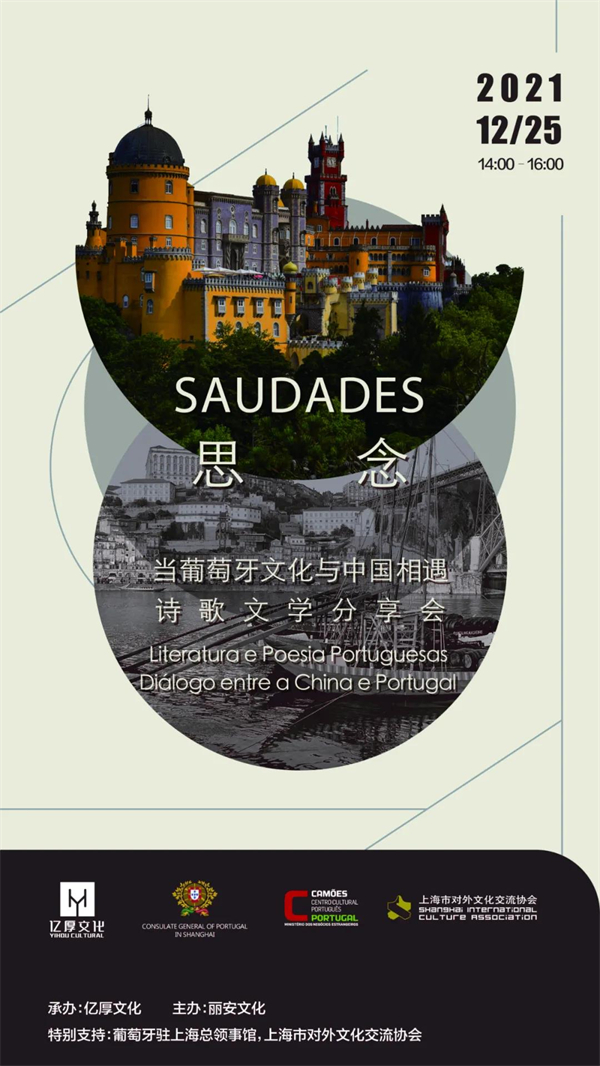
Shanghai | Missing: When Portuguese Culture Meets China —— Poetry and Literature Sharing Meeting
Time:December 25th (Saturday) 14:00-16:00
Location:Lugar, Floor 3, Building D, Henderson Xuhui Tiandi, Lane 458, Madang Road, Huangpu District
Guest:Isawa (Consul General of Portugal in Shanghai), Cai Xin (General Manager of CITIC Publishing Dafang), Zhao Song (writer and critic) and Xu Yixing (Professor of Shanghai International Studies University)
Christmas is coming! In addition to a gourmet dinner, family reunion and a special activity. This Saturday, Lian Culture and the Portuguese Consulate General in Shanghai jointly launched a literary salon with the theme of "Missing: Portuguese Literature and Poetry-Dialogue between China and Portugal", waiting for you to explore Portuguese poetry and literature together.
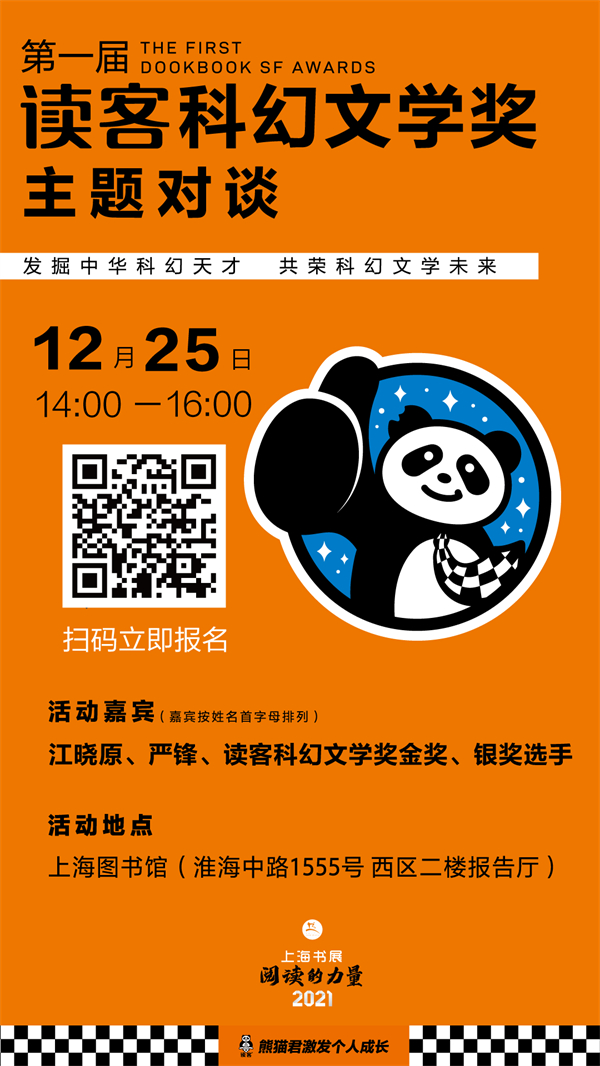
Shanghai | On the Theme of the First Reader Science Fiction Literature Award
Time:December 25th (Saturday) 14:00-16:00
Location:Lecture Hall, 2nd Floor, West Gate, Shanghai Library, No.1555 Huaihai Middle Road, Xuhui District
Guest:Jiang Xiaoyuan (Professor of Shanghai Jiaotong University), Yan Feng (Professor of Chinese Department of Fudan University), etc.
Dialogue on the theme of the first Reader’s Science Fiction Literature Award, two guests, Jiang Xiaoyuan and Yan Feng, as well as gold medal and silver medal players May Feather, Lao Tanzi, Yang Jiandong and Qiu Xin, will talk about how to tell the local science fiction stories in China well.
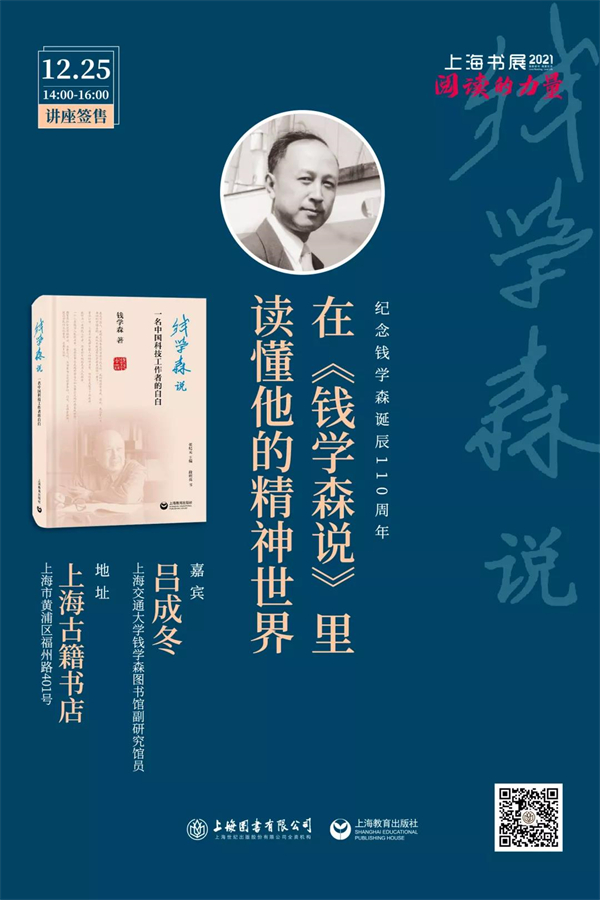
Shanghai | Understanding Qian Xuesen’s Spiritual World in "On Qian Xuesen"
Time:December 25th (Saturday) 14:00-16:00
Location:Shanghai Ancient Books Bookstore, No.401 Fuzhou Road, Huangpu District
Speaker:Lv Chengdong (Deputy Research Librarian of Qian Xuesen Library of Shanghai Jiaotong University)
December 11th, 2021 is the 110th anniversary of the birth of Qian Xuesen, an outstanding scientist and founder of China’s space industry. On December 25th, in order to understand Qian Xuesen’s knowledge-seeking experience and understand Qian Xuesen’s spirit, Lv Chengdong, deputy research librarian of Qian Xuesen Library of Shanghai Jiaotong University, will hold a lecture and signing ceremony on "Reading His Spiritual World in Qian Xuesen’s Tales" in Shanghai Ancient Books Bookstore. In the lecture, the guests will lead the readers to Qian Xuesen and feel his faith and love for the people of his country and the development of science and technology.
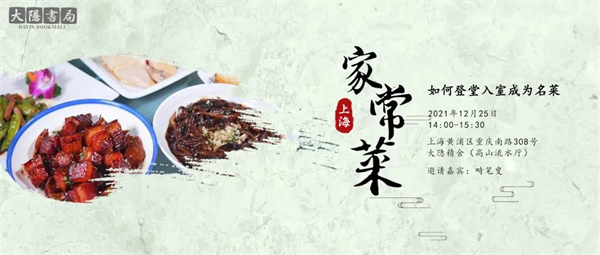
Shanghai | How does Shanghai home cooking become a famous dish?
Time:December 25th (Saturday) 14:00-15:30
Location:Da Yin Jing She Gao Shan Liu Shui Ting, No.308 Chongqing South Road, Huangpu District
Speaker:Abnormal pen (writer, producer)
Shanghai cuisine used to be called local cuisine, which is rich in flavor and rich in oil and red sauce, and has a homely flavor. Since Shanghai opened its port in 1843, with the development of industry and commerce, merchants from all directions gathered, and restaurants came into being. By the 1930s and 40s of this century, there were many local restaurants in Shanghai. Shanghai is located in a water town in the south of the Yangtze River, with abundant aquatic resources and evergreen vegetables. It is located in a transportation hub, and it is convenient to purchase local specialties, which provides good raw materials and seasonings for the development of Shanghai cuisine. Under these conditions, the former local cuisine has gradually formed a unique Shanghai cuisine today. On December 25th, an old Shanghainese and a senior media person will tell the story of how Shanghai home cooking became a famous dish in Dayin Jingshe, and listen to the little stories of Shanghai home cooking.
Shanghai | From the Bund to Lujiazui —— One River and One River and the Formation of Shanghai City Landmarks
Time:December 25th (Saturday) 15:00-16:00
Location:Atrium of Building A, Lianyang Plaza, No.300 Fangdian Road, Pudong New Area
Speaker:Xing Jianrong (Deputy Director of Shanghai Archives Bureau and former Deputy Director of Shanghai Archives Bureau)
Mr. Xing Jianrong has dabbled in Shanghai’s urban landscape, commercial finance, ups and downs of people, and rare stories of Yilin in the past hundred years. Where the European War Monument on the Bund went, the mystery of the height of China Bank Building, and so on are all interesting topics. An article is like a knowledge lecture. Huang Jinrong’s later years, the models of Shanghai Fine Arts College, the process of the establishment of Shanghai China Painting Academy, and the comic book artist of Shanghai People’s Art Society-"108 Generals", these chapters are like legendary stories and fascinating.
Shanghai | Looking at Shanghai as an Immigrant City from an Old Apartment
Time:December 25th (Saturday) 16:00-17:00
Location:Atrium of Building A, Lianyang Plaza, No.300 Fangdian Road, Pudong New Area
Speaker:Xu Ce (first-class editor and writer of Shanghai Radio and TV Station)
"Spring Water" is the finale of a multi-volume novel. It takes a riverside building on the Suzhou River, once known as "the first apartment in Asia", as a real scene, and shows the ups and downs experienced by people of all walks of life living here in the past 60 years. The characters in the riverside building and their fate are actually a microcosm of the city.
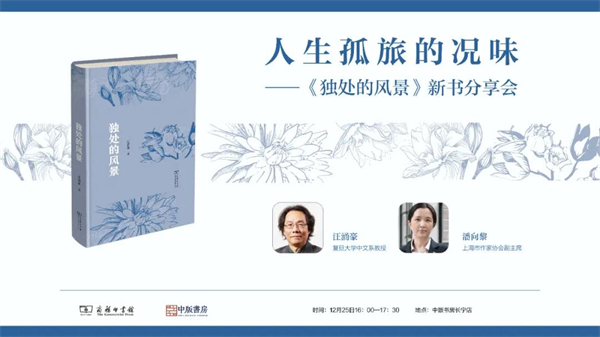
Shanghai | The Situation and Taste of Lonely Travel in Life —— The Release Conference of the New Book "Lonely Scenery"
Time:December 25th (Saturday) 16:00-17:30
Location:Zhongban study room, No.345 Xianxia Road, Changning District
Guest:Wang Yonghao (Professor of Chinese Department of Fudan University) and Pan Xiangli (Novelist)
Modern people who travel through the hustle and bustle of the city generally lose the sense of empathy with people and the universe, and face the world alone in their hearts. What is true literature? What else can we do about literature? On December 25th, we invited two teachers, Wang Yonghao and Pan Xiangli, to come to the Chinese version of the study room to discuss history and art from poetry books, novels and music records to landscapes, cities and civilizations, so as to enrich the spiritual scenery in the journey of life for the "spiritual solitude".
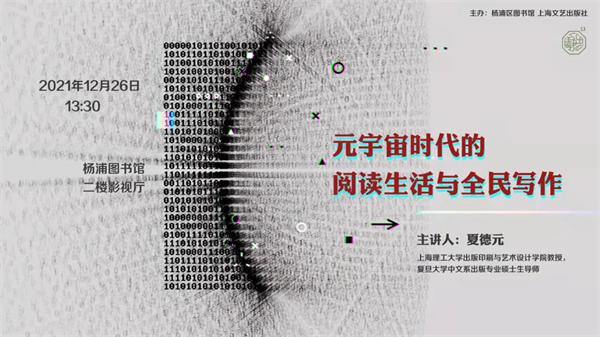
Reading Life and National Writing in Shanghai | Meta-Universe Era
Time:13:30 on Sunday, December 26th.
Location:Film and Television Hall, 2nd Floor, Yangpu District Library, No.366 Changhai Road, Yangpu District
Speaker:Xia Deyuan (Professor, School of Publishing, Printing and Art Design, University of Shanghai for Science and Technology)
The ability to read is a unique talent of human beings, and it is also an increasingly important way of life for human beings. After entering the Internet era, traditional reading has encountered many problems and challenges, and also ushered in new development opportunities. As Blanqui, a French thinker, said, "The so-called reading means that people can be free and their works can be free." Reading should be a learning activity and a living state of physical and mental pleasure; Only by enjoying it can we benefit. The advent of the meta-cosmic era has brought a huge imagination space for human reading life and writing practice, making it possible to bid farewell to the hard study of the head-hanging beam and the awl-piercing stock completely.
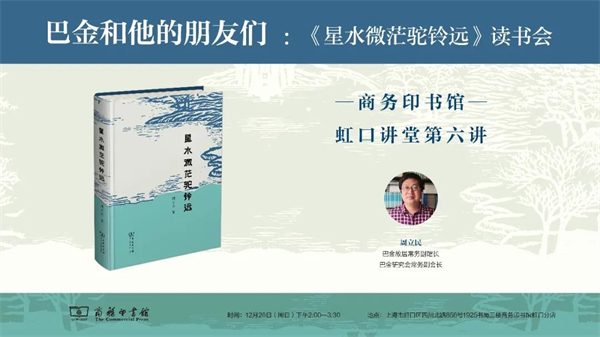
Shanghai | Ba Jin and his friends: The Reading Club of "The Star Water is Far Away from the Camel Bell"
Time:December 26th (Sunday) 14:00-15:30.
Location:Hongkou Branch, Commercial Press, 3rd Floor, 1925 Bookstore, No.856 Sichuan North Road, Hongkou District
Speaker:Zhou Limin (Executive Deputy Director of Ba Jin’s Former Residence and Executive Vice President of Ba Jin Research Association)
"A Twilight in the Stars" is based on the important life segments and ideological development tracks of six writers and scholars, such as Shen Congwen, Bian Zhilin, Li Jianwu, Liang Zongdai, Fang Lingru and Xiao Gan, and the connection between them and the history of China in the 20th century, with friends such as Ba Jin, Zheng Zhenduo and Shen Ying making friends and singing in spirit, so as to observe the spiritual outlook of new literature writers after the May 4th Movement and their correspondence with the times. On Sunday afternoon, let’s meet the Hongkou branch of the Commercial Press and listen to the story of Ba Jin and his friends told by Mr. Zhou Limin.
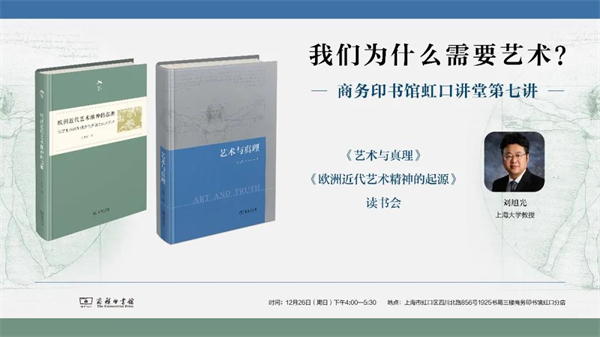
Shanghai | Why do we need art?
Time:December 26th (Sunday) 16:00-17:30
Location:Hongkou Branch, Commercial Press, 3rd Floor, 1925 Bookstore, No.856 Sichuan North Road, Hongkou District
Speaker:Liu Xuguang (Professor and Doctoral Supervisor of Shanghai University)
Does art contain truth, and how is truth embodied in art? Is truth a concrete thing that has existed in nature, or something created in people’s hearts? What do Heidegger, Husserl and Hegel say? In two books, The Origin of Modern European Artistic Spirit-Florence Culture and Art in Renaissance, Art and Truth, Liu Xu takes you into the world of art and the palace of truth. On Sunday afternoon, we met with the Hongkou branch of the Commercial Press and asked together with Professor Liu Xuguang, "Why do we need art?"
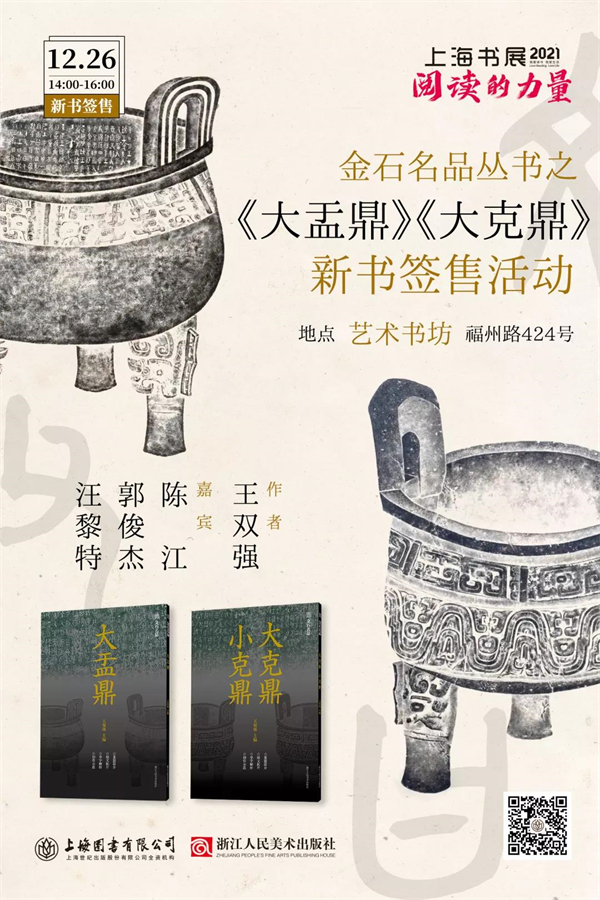
New Book Signing Activities of "Da Yu Ding" and "Da Ke Ding" in Shanghai | Jinshi Famous Series
Time:December 26th (Sunday) 14:00-16:00
Location:Floor 1, Art Bookstore, No.424 Fuzhou Road, Huangpu District
Guest:Wang Shuangqiang (chairman and founder of Qinhan Hutong), Chen Jiang (chairman of Zhongrui Wenlv), Guo Junjie (co-founder of Fan Deng Reading) and Wang Lite (member of Xiling Printing Society).
Ding is one of the most important bronze wares in ancient China. In the Zhou Dynasty, there were regulations on the number of users, such as "Emperor Jiuding, Seven Diners of Governors, Five Diners of Qing Dafu and Three Diners of Yuan Shi". With the gradual evolution of this rank, identity and status symbol, Ding has gradually become a symbol of the country, the country and power. On the afternoon of December 26th, Simona, with his new book "Da Yu Ding" and "Da Ke Ding", and other guests, such as Chen Jiang, the chairman of China-Sweden Literature Travel Service, Guo Junjie, the co-founder of Fan Deng Reading, and Wang Lite, a member of Xiling Printing Society, held a new book signing activity in the art bookstore. During the activity, Simona will exchange the historical origin and artistic value of "Yueke Shuangding" with readers, and sign autographs for readers.
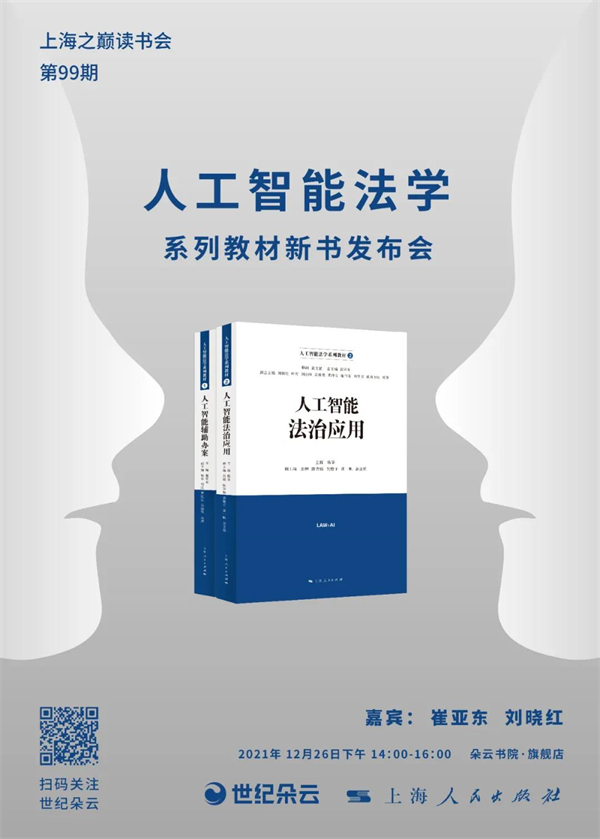
Shanghai | New Book Conference of Artificial Intelligence Law Series Textbooks
Time:December 26th (Sunday) 14:00-16:00
Location:Duoyun Academy, 52nd Floor, Shanghai Tower, No.501 Yincheng Middle Road, Pudong New Area
Guest:Cui Yadong (Party Secretary and President of Shanghai Law Society) and Liu Xiaohong (President of Shanghai University of Political Science and Law)
The book "Artificial Intelligence Assisted Case Handling" shows the history and present situation of the development of artificial intelligence macroscopically, details the birth process of the intelligent assisted case handling system for criminal cases, introduces its system overview and system architecture, and summarizes the technical application of the intelligent assisted case handling system from two aspects of application technology principle and application technology innovation. On the afternoon of December 26th, Cui Yadong, Party Secretary of Shanghai Law Society and Chief Editor of Artificial Intelligence Law Series, and Liu Xiaohong, President of Shanghai University of Political Science and Law and Deputy Chief Editor of Artificial Intelligence Law Series, will visit Duoyun Academy flagship store to share the intersection of artificial intelligence law and modern society with readers.
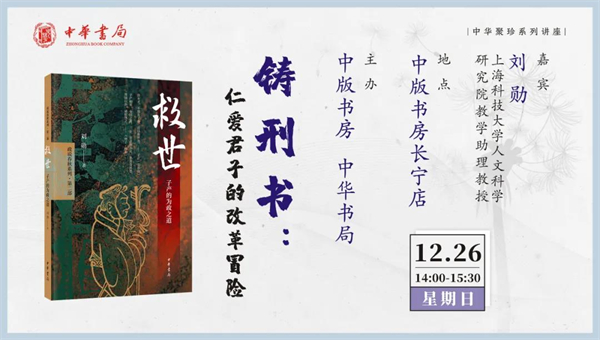
Shanghai | The Book of Imprisonment: The Reform Adventure of a Benevolent Gentleman
Time:December 26th (Sunday) 14:00-15:30.
Location:Zhongban study room, No.345 Xianxia Road, Changning District
Speaker:Liu Xun (Assistant Professor, Institute of Humanities, University of Science and Technology Shanghai)
In 536 BC, under the strong impetus of the ruling Qing Zi chan, the Zheng government cast the criminal law, which had been secretly mastered by the prison authorities, on a series of bronze dings and made it public to the whole society all the year round, as a unified standard for the country to adjudicate cases and sentence. This is the reform of "casting criminal books". "The Book of Casting Punishment" is the first written law published in the history of China, which is not only an important event in the political history of Zheng, but also an important event in the legal history of China. Why did Zichan promote this unprecedented reform adventure? After the start of the reform, what kind of storm has been set off in Zheng State and what kind of controversy has been caused at the international level? What is the far-reaching significance of this reform for future generations? Professor Liu Xun, the author of Salvation: Zi Chan’s Way of Governing the Country, will explain it to you.
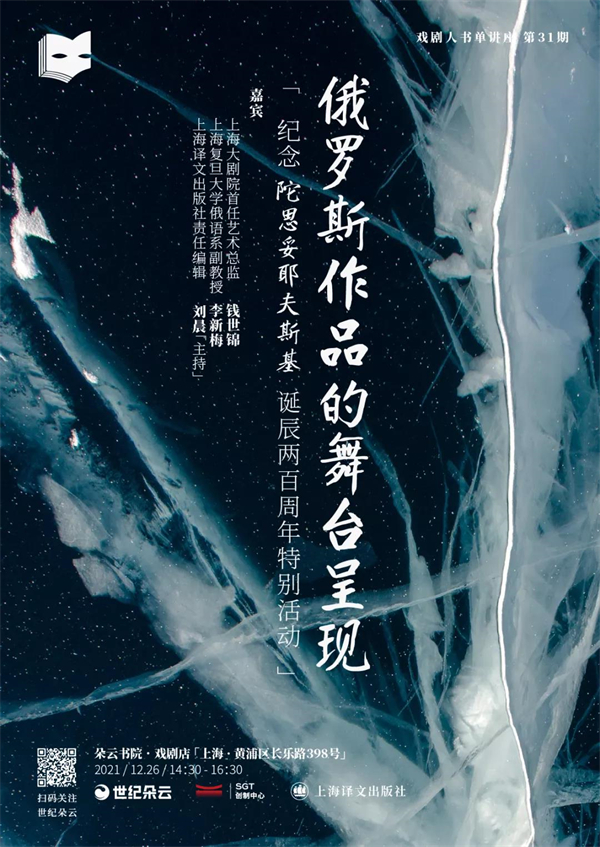
Shanghai | Stage Presentation of Russian Works
Time:December 26th (Sunday) 14:30-16:30
Location:Duoyun Academy Drama Store, No.398 Changle Road, Huangpu District
Guest:Qian Shijin (Special Expert of China Theatre Development Research Center), Li Xinmei (Associate Professor of Russian Department, School of Foreign Languages, Fudan University) and Liu Chen (Russian Editor of Shanghai Translation Publishing House).
This year marks the 200th anniversary of Dostoevsky’s birth. Brothers karamazov is Dostoevsky’s last work, which contains all novels. In 2022, it will be adapted into the Chinese musical brothers karamazov, vividly presented on the stage and premiered at the Shanghai Grand Theatre. On the afternoon of December 26th, Qian Shijin, the first artistic director of Shanghai Grand Theatre, Li Xinmei, an associate professor of Russian Department of Fudan University, and Liu Chen, Russian editor of Shanghai Translation Publishing House, will start from the adaptation of the Chinese musical brothers karamazov, talk with readers about the reasons why world famous works are frequently selected for the stage by musicals, and discuss the staged classic works of Russia and the staged versions of other works of Tolstoy.
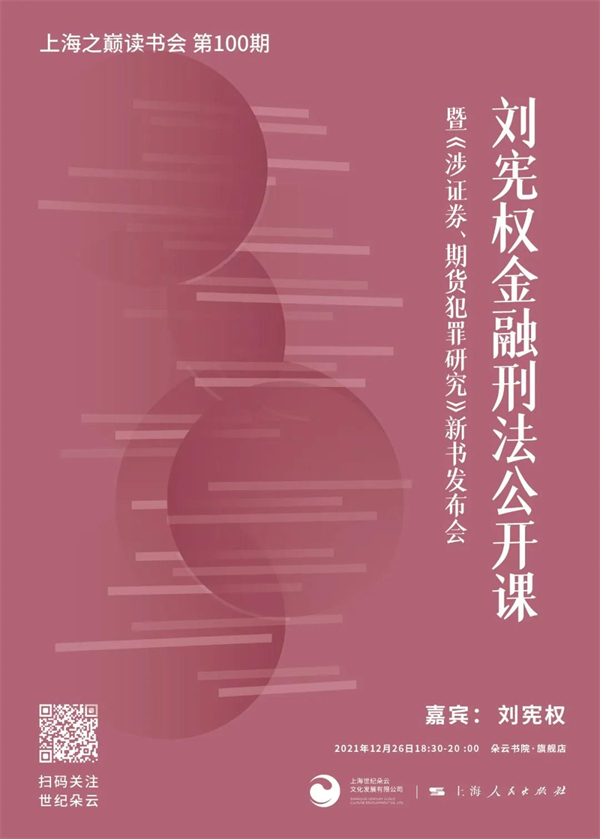
Shanghai | Liu Xianquan’s Open Course of Financial Criminal Law and the Press Conference of the New Book "Research on Securities and Futures Crimes"
Time:December 26th (Sunday) 18:30-20:00.
Location:Duoyun Academy, 52nd Floor, Shanghai Tower, No.501 Yincheng Middle Road, Pudong New Area
Speaker:Liu Xianquan (Professor and Doctoral Supervisor of East China University of Political Science and Law)
The book "Research on Securities and Futures Crimes" written by Liu Xianquan focuses on the crimes related to securities and futures trading in the financial market, such as insider trading, leaking inside information, trading with undisclosed information, and manipulating the securities and futures markets. On the evening of December 26th, Liu Xianquan, a professor at East China University of Political Science and Law and president of the Institute of Criminal Law, will be a guest at the flagship store of Duoyun Academy to share his new book and bring readers an open class of financial criminal law.
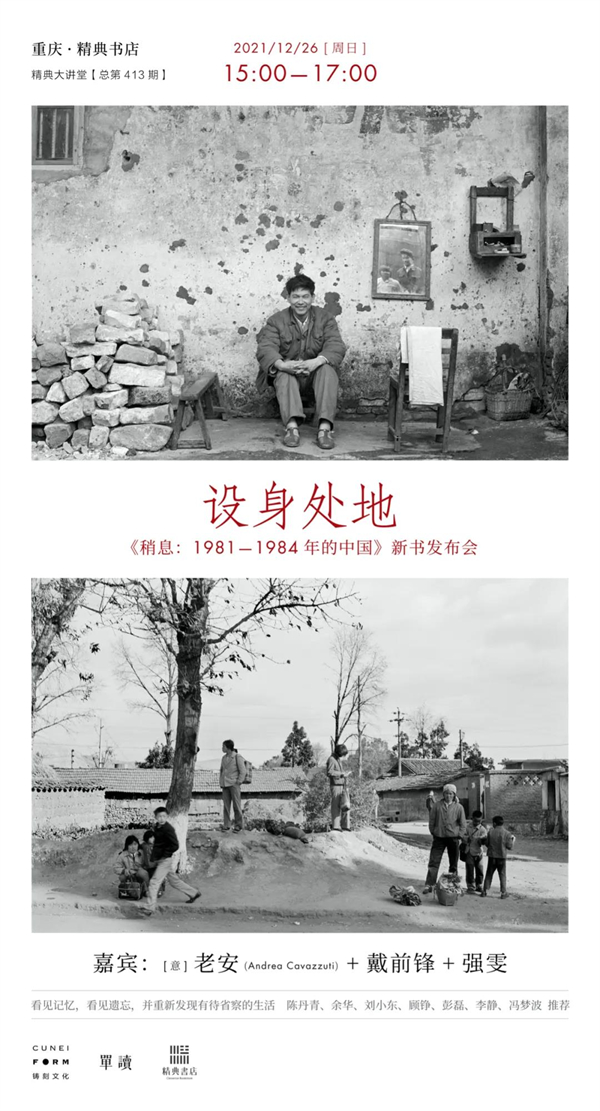
Chongqing | Put yourself in the other’s shoes —— The new book release conference of At Rest: China from 1981 to 1984.
Time:December 26th (Sunday) 15:00-17:00
Location:L2 Classic Bookstore, Hall 1891D, Dongyuan, No.83 Nanbin Road, Nan ‘an District
Guest:Lao An (photographer), Dai Qianfeng (photographer, book editor) and Qiang Wen (writer)
Forty years ago, Italian photographer Andrea Cavazzuti came to China. Nowadays, he has become a kind "old man" in the mouth of his friends. His first photo collection "At Rest: China from 1981 to 1984" was also published, which included more than 190 frames of photos he took in China from 1981 to 1984, and recorded some daily life scenes of China people in that "at ease era". On December 26th, we specially invited Dai Qianfeng, a senior photographer and writer, and Lao An to talk about the daily life of people in that "time of rest" and re-examine the life that may have been forgotten by us.
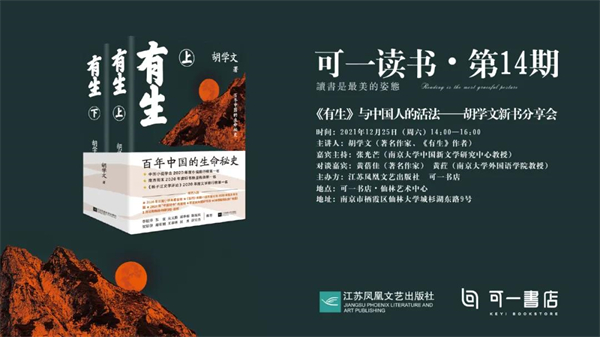
Nanjing | "Life" and China people’s living methods-Hu Xuewen’s new book sharing meeting
Time:December 25th (Saturday) 14:00-16:00
Location:Keyi Bookstore Xianlin Art Center, No.9 Shanhu East Road, Qixia District
Guest:Hu Xuewen (writer), Huang Beijia (writer) and Huang Hong (professor and doctoral supervisor of French Department of Nanjing University).
On the afternoon of December 25th, Hu Xuewen, a famous writer, will appear in Keyi Bookstore, Nanjing, with Huang Beijia, a famous writer, and Huang Mi, a professor at the School of Foreign Languages of Nanjing University, as guest speakers, and Zhang Guangguang, a professor at the China New Literature Research Center of Nanjing University, as guest hosts. This activity will have a wonderful dialogue and collision with the theme of "Life and the Living Method of China People".
Hangzhou | Customs and Boundaries —— Thinking from the litigation files
Time:Monday, December 27th, 19:00-21:00.
Location:Room 1127, Creative Building A, Zijingang West District, Zhejiang University, No.866 Yuhangtang Road, Xihu District
Speaker:Du Zhengzhen (Professor, School of History, Zhejiang University)
In litigation files, it is easy to see that etiquette, law and custom together constitute a system of social rules, but what is more interesting is their historical evolution relationship. Disputes over the ownership of mountain fields are also very common. The fierce competition around the boundary confirmation is behind the history of the boundary from scratch, from oral to written, from private agreement to cadastre. Starting from people’s actual operation and expression in litigation, these two examples may lead us to think about the historical process and power mechanism of how people obtain "certainty" and "consensus" in traditional society.
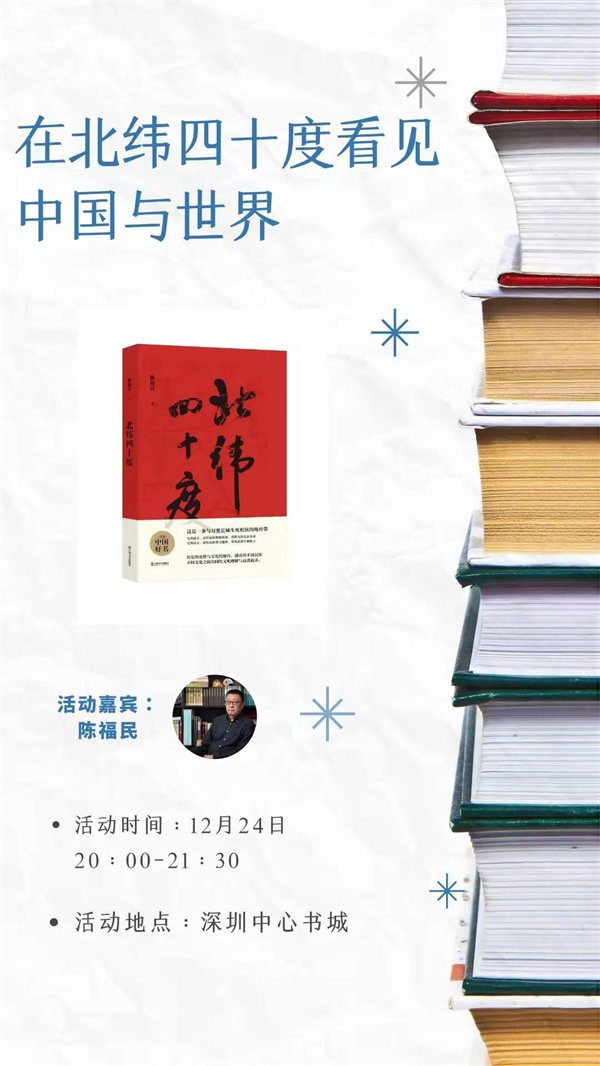
Shenzhen | See China and the world at 40 degrees north latitude.
Time:20:00 on Friday, December 24th.
Location:Shenzhen Central Book City, No.2014 Fuzhongyi Road, Futian District
Speaker:Chen Fumin (scholar and critic)
Forty degrees north latitude is a great cultural essay that focuses on forty degrees north latitude. Taking the long history of China as the longitude and the geographical belt of forty degrees north latitude as the latitude, the author Chen Fumin drew a unique map of the mountains and rivers through the ages. On Friday night, Chen Fumin will take this new book to Shenzhen Central Book City to talk with readers about China and the world seen at 40 degrees north latitude.
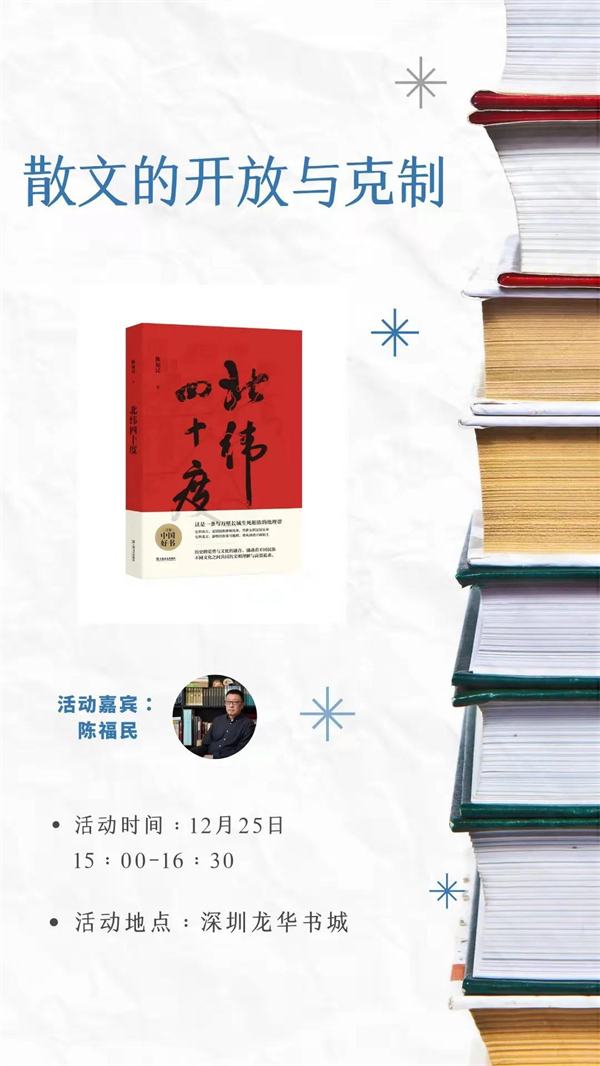
Shenzhen | Openness and Restraint of Prose
Time:15:00 on December 25th (Saturday)
Location:Shenzhen Longhua Book City, No.1389 Meilong Avenue, Longhua District
Speaker:Chen Fumin (scholar and critic)
On Saturday afternoon, Chen Fumin will come to Shenzhen Longhua Bookstore with his new work "Forty Degrees North Latitude" to share and communicate with readers and talk about prose writing.
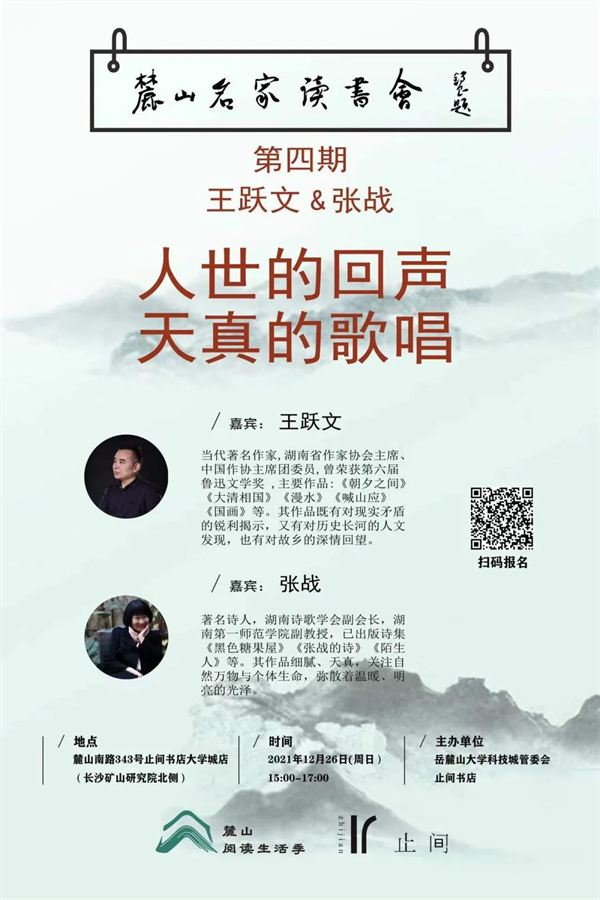
Changsha | Echo of the World Innocent Singing
Time:December 26th (Sunday) 15:00-17:00
Location:Zhijian Bookstore, No.343 Lushan South Road, Yuelu District
Guest:Wang Yuewen (writer) and Zhang Zhan (poet)
From the collection Shoushan Ying, we can see the writer Wang Yuewen’s self-analysis and dialogue, as well as his absolute frankness to literature. Zhang Zhan and Wang Yuewen are not only a couple in life, but also literary companions. As a poet, Zhang Zhan writes about everything in nature and the journey of life in the form of poetry. Everything can be included in poetry, and everything is poetry. On Sunday afternoon, the fourth phase of Lushan Famous Reading Club invited Wang Yuewen, a famous writer, to have a dialogue with Zhang Zhan, a poet, to stop at a bookstore in University Town. This will be a dialogue of literature, a dialogue of life, and even a dialogue between each reader and himself in the name of literature at the end of the year.
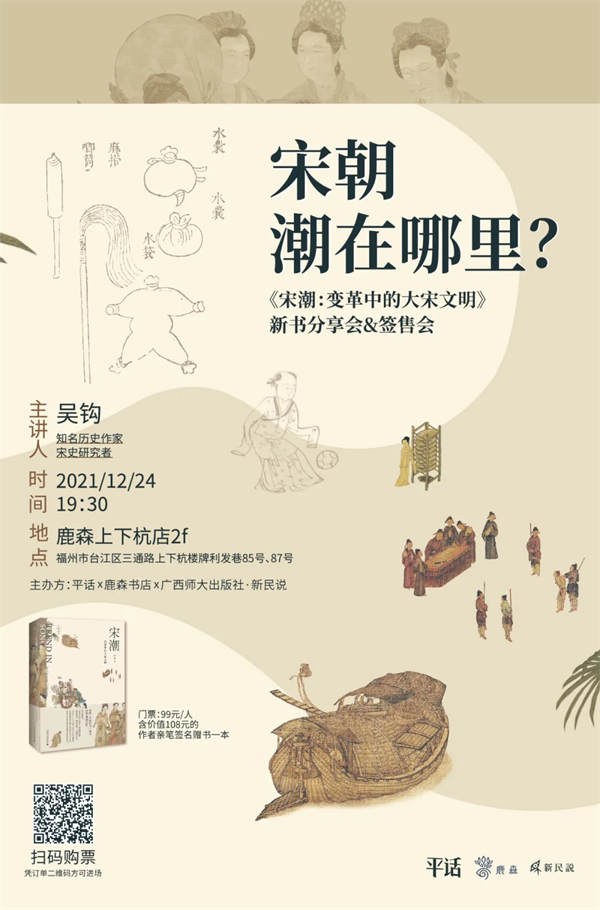
Fuzhou | Song Dynasty, where is the tide? -"Song Chao: Great Song Civilization in Change" Book Sharing Signing Conference
Time:19:30 on Friday, December 24th.
Location:2F, Lusen Bookstore, No.85 and No.87, Shangxiahanglifa Lane, Taijiang District
Speaker:Wu Gou (historical writer)
Do women have property rights in Song Dynasty? When did the world’s first fire brigade come into being? What procedures do Song people need to buy a house and rent a house? Wu Gou, a well-known historical writer and researcher of the Song Dynasty, brought us back to the historical scene with his latest masterpiece Song Chao: The Great Song Civilization in Change, and carefully examined 25 manifestations of the Song Dynasty civilization with the characteristics of modernization, showing various clues of modernization in five fields, namely, municipal administration, humanities, economy, politics and justice. On December 24th, I came to Lusen Bookstore in Fuzhou and listened to "Song Fen" Wu Gou telling about the Song Dynasty. Where was the tide?
